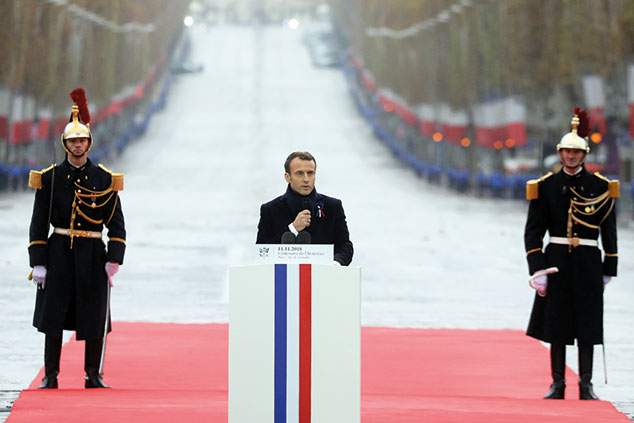
Last weekend was a good one for Emmanuel Macron on the world stage. The French president’s speech at a ceremony in Paris to mark 100 years since the end of World War I, in which he warned of the dangers of nationalism, won him praise in much of the international media. His reputation as a global statesman got a significant boost – helped by the contrast with US president Donald Trump, who was mercilessly mocked for missing a memorial visit to an American military ceremony in France the previous day because it was raining too hard.
At times like this, Macron, who is just 40, often manages to look like the leader Europe – and the world – will need for the next couple of decades as German chancellor Angela Merkel comes to the end of her time in power. But domestically, it’s a very different story. Just three days before his speech, Macron was booed by workers at a Renault factory as he tried to defend his economic policies. The previous day, he was criticised for praising Marshal Pétain, the World War I general, as a “great soldier”. Pétain’s reputation was irreparably sullied when he later headed the Vichy government that collaborated with Germany in World War II. At the end of October, his decision to take a few days off for a break in Normandy led to speculation that he was burning out under the pressure of the job (rumours that seemed entirely credible given that he is reported to be an obsessive micromanager who sleeps just four hours a night). Next weekend, he faces nationwide protests that aim to bring traffic on motorways to a halt over high fuel prices.
His approval ratings are dire: just 21% of voters said they have confidence in him in one poll last week – less than François Hollande, his hapless predecessor, at the same stage of his presidency. And his En Marche party has slipped behind the far-right Rassemblement National (RN – formerly the Front National) in opinion polls for next May’s European elections. France is disenchanted and discouraged with its president, once again. So why has the new man who promised to transform a sclerotic and over-taxed French economy failed to deliver?